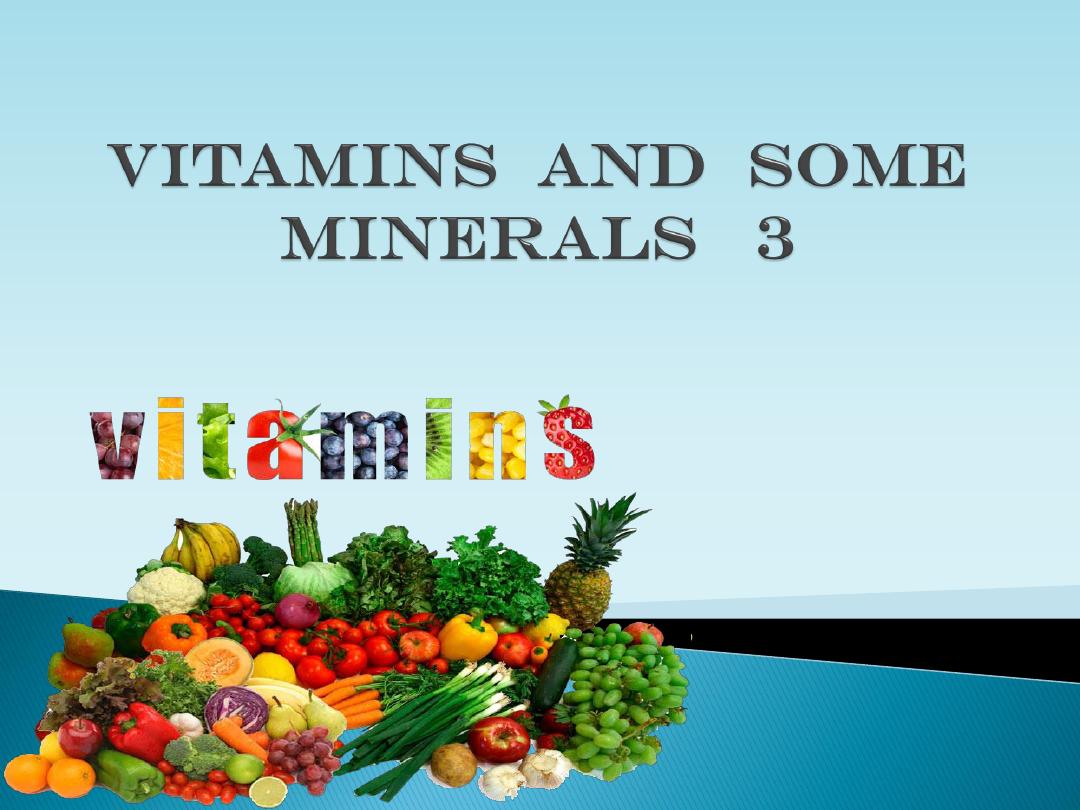
Dr. Akeel Al-yacopy
M.B.Ch.B
Baghdad
M.R.C.P London
M.R.C.P UK
F.R.C.P Glasgow
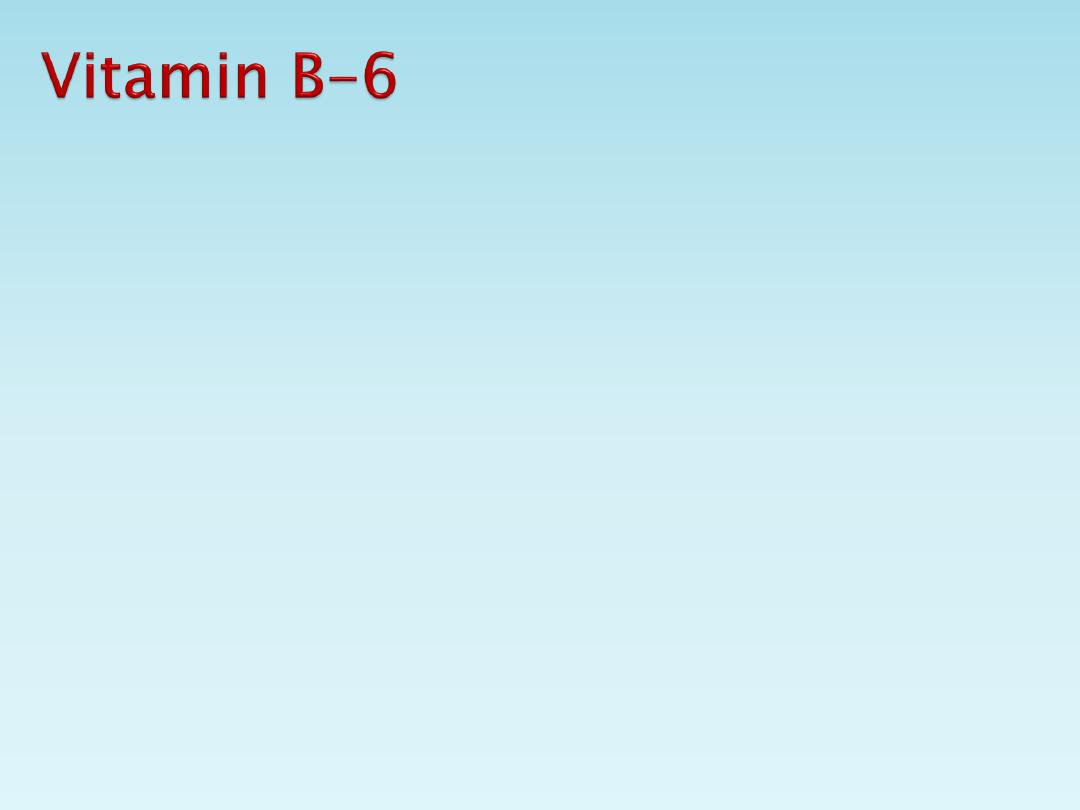
The term vitamin B-6 includes five closely related
substances that all occur in foods and in the body:
Pyridoxol.
Pyridoxol 5 phosphate.
Pyridoxamin.
Pyridoxamin 5 phosphate.
Pyrioxine.
Pyridoxol 5 phosphate is coenzyme for over 100
reactions in the body involving amino acid.
*Daily requirement 1.5mg.
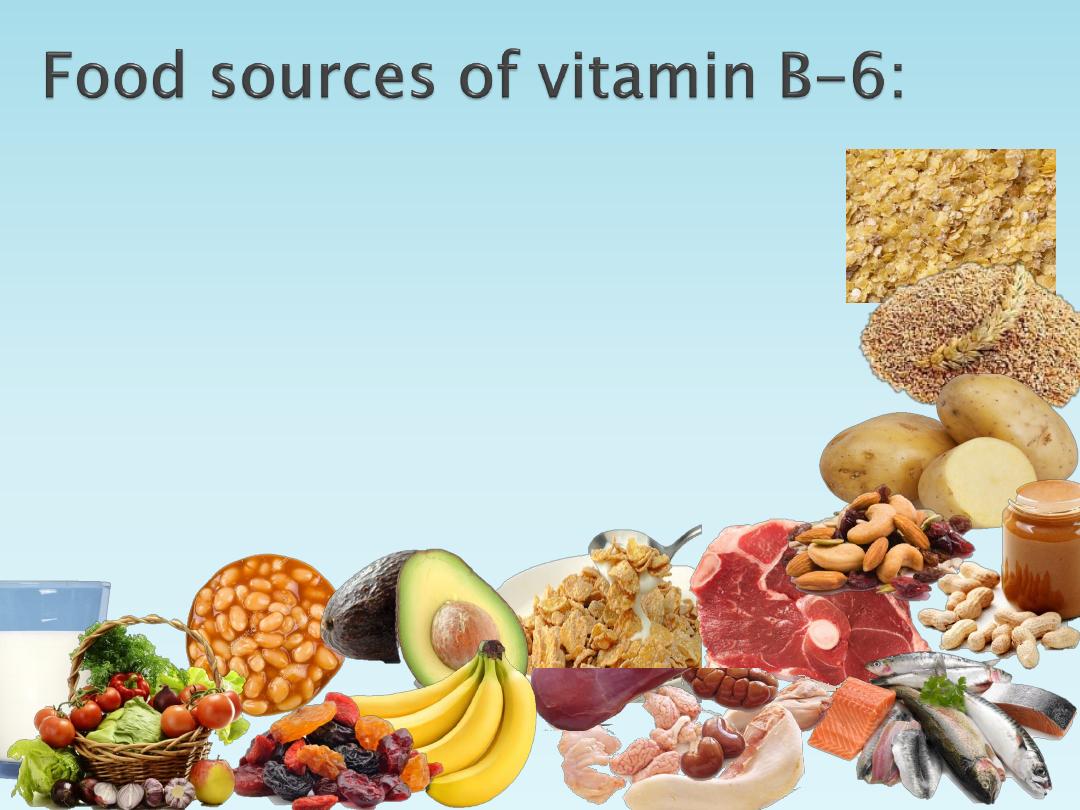
Wheat germ and bran.
Potatoes.
Nuts and seeds, peanut butter.
Meat, fatty fish, and offal.
Fortified breakfast cereals.
Banana, avocado, dried fruit.
Raw vegetables, baked beans.
Milk.

Primary dietary deficiency is rare.
Several drugs interfere with vitamin B-6 (Hydralazine,
Penicillamine, Estrogen).
Peripheral neuropathy from high dose isoniazide is prevented
with Pyridoxine.
There are several confitions for which pharmacological doses
of 50 to 100mg of Pyridoxine are probably beneficial, these
include:
Homocystinuria.
Hyperoxaluria.
Gyrate atrophy of choroid.
Hypochromic sideroblastic anaemia.
Radiation sickeness.
High dose of vitamin B-6 above 100mg/day in repeated
dosage may cause severe sensory neuropathy.
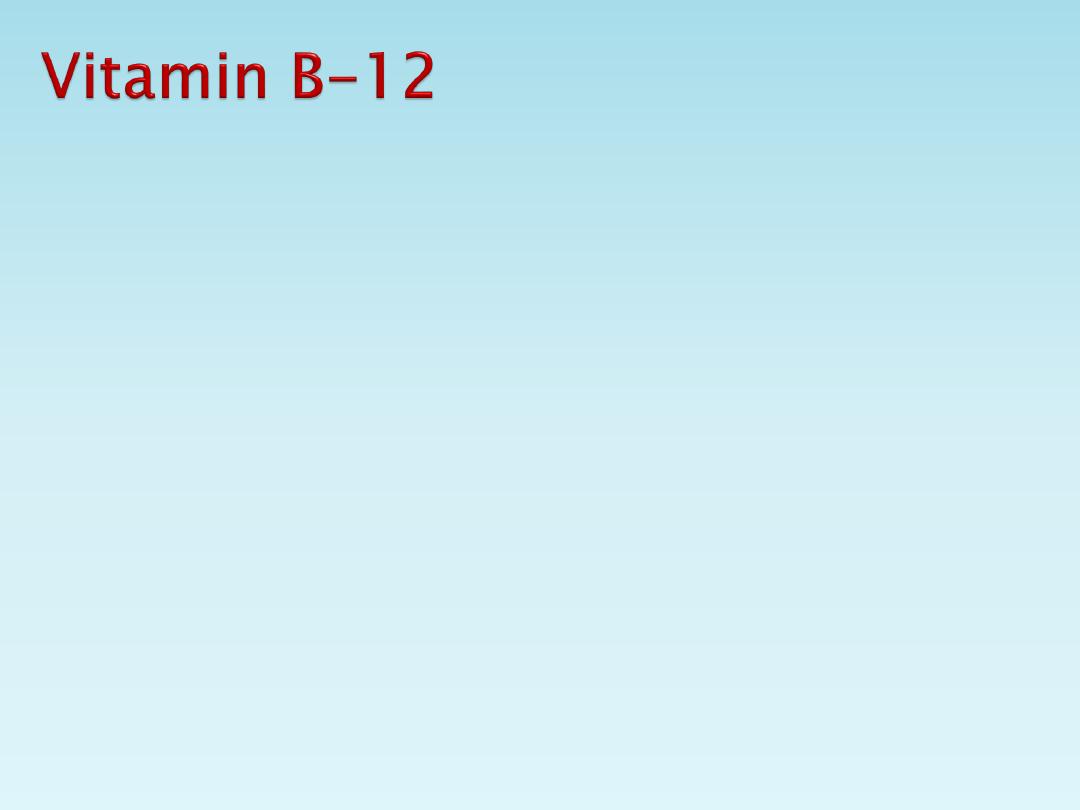
The red vitamin was the last to be isolated (1948).
Humans eat the preformed in animal foods including fish
and milk. It is synthesised by some micro-organisms, for
example in rumen of cows and sheep (which require traces
of Cobalt in the pasture).
No vegetable food has been shown to contains vitamin B-12
consistently unless it is contaminated, for example by
manure.
Humans excrete in the feces vitamin B-12 that has been
synthesised by the colonic bacteria.
Vitamin B-12 is the largest of the nutrients with a molecular
weight of about 1350.
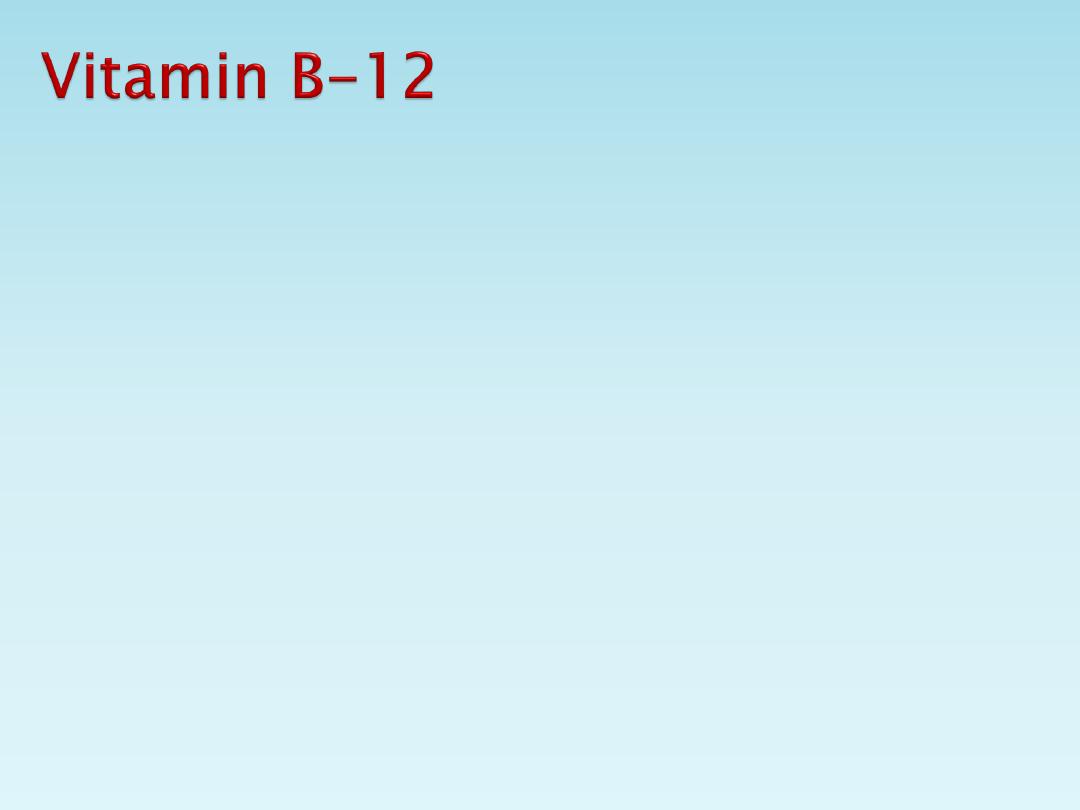
To be absorbed it requires intrinsic factors from the stomach
and the complex is absorbed only at a special site in
terminal ileum.
Deficiency occurs in several gastric, intestinal, and ileal
diseases, including Pernicious anaemia (gastric atrophy, no
intrinsic factor), and in vegans (pure vegetarian).
The adult body stores of vitamin B-12 in the liver last
longer than those for any other vitamins, but deficiencies
occur more quickly in infants.
*Daily requirement for healthy adults: 1.5μg.
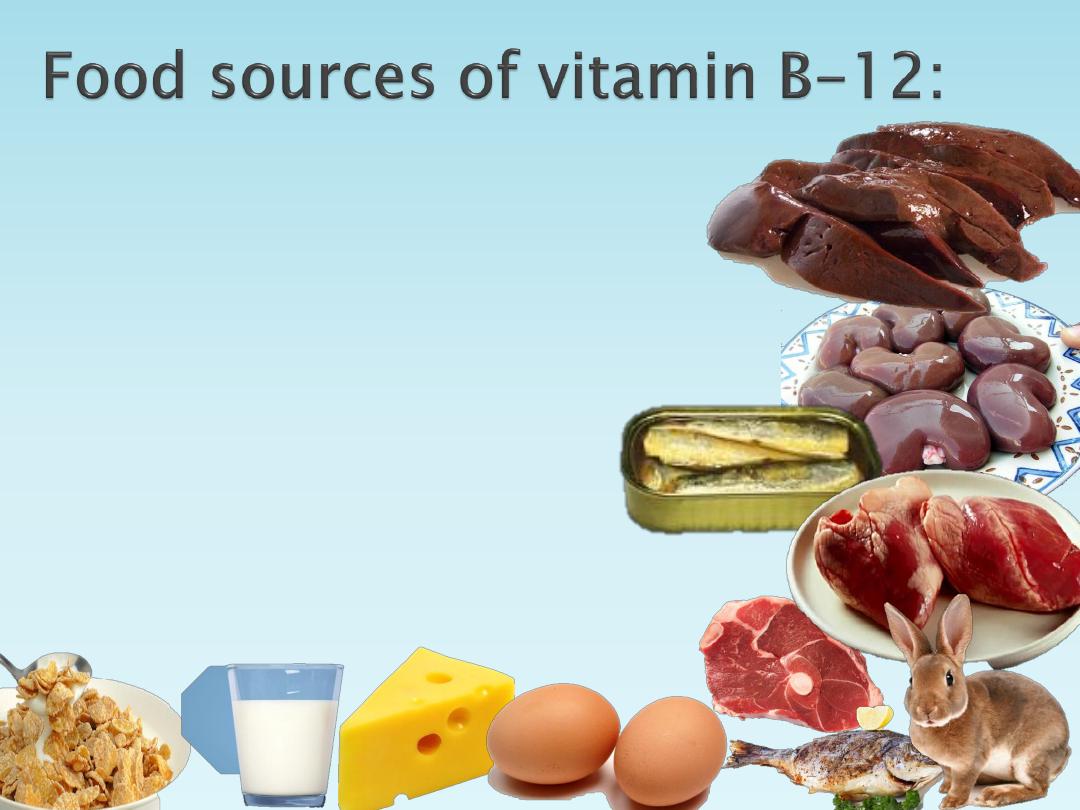
Liver (richest source).
Kidney.
Sardines.
Heart, rabbit.
Other meat and fish.
Eggs.
Cheese.
Milk.
Some fortified breakfast cereals.

Vitamin B-12 cooperates with Folate in DNA synthesis, so
deficiency of either leads to megaloblastosis (anaemia and
infertility).
Also vitamin B-12 has a separate biochemical role unrelated
to Folate in synthesising fatty acids in myelin, so deficiency
can present with neurological symptoms.
Supplementation with hydroxocobalamin is desirable for
adult vegans and essential for their young children.
Several drugs like Cholchicin and metformin and prolonged
anesthesia with nitrous oxide can interfere with absorption of
vitamin B-12.
Hydroxocobalamin can improve some cases of optic neuritis,
possibly by detoxifying accumulated cyanide.
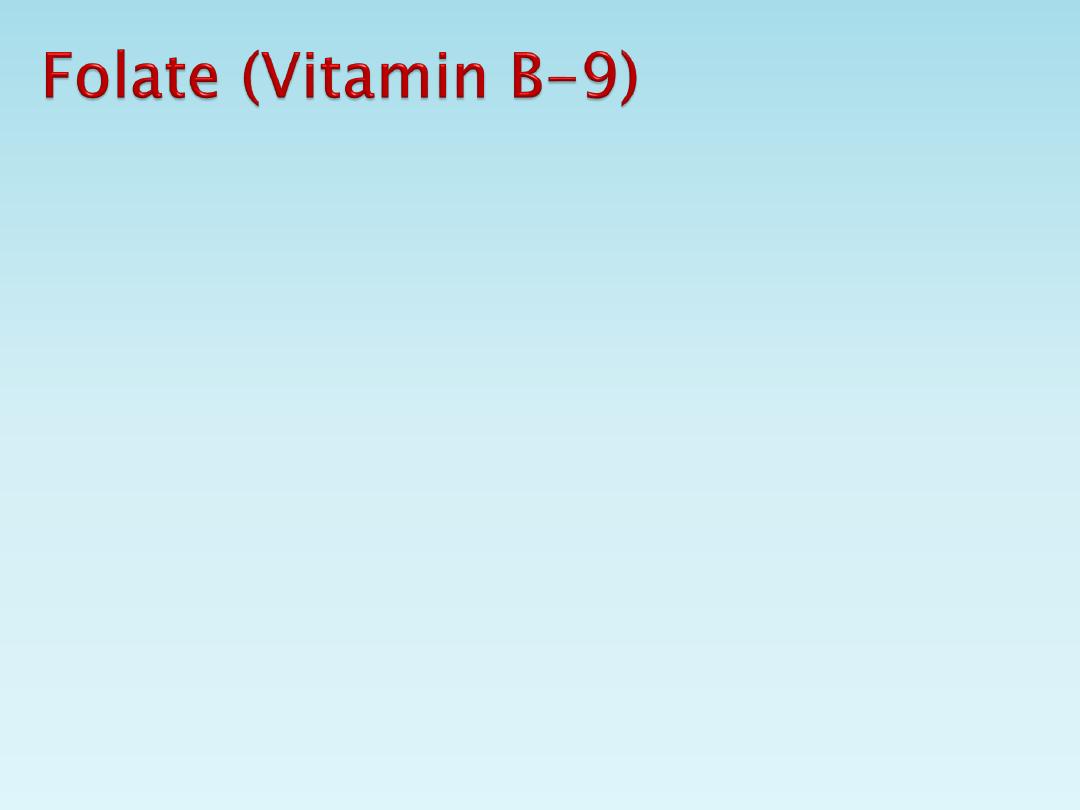
Folic acid (Pteroylglutamic acid) is the primary vitamin
from the chemical point of view, and this is (Folate) the
pharmaceutical form because of its stability. But it is rare in
foods or in the body.
Most folates are in the reduced form (tetrahydrofolate), they
have one-carbon components attached to the pteroyl ring,
and up to seven (instead of one) glutamic acid residues in a
row at once end.
Folate is the group name for all these compounds with
vitamin activity.
*Daily requirement for healthy adults: 200μg (double
this in pregnancy).
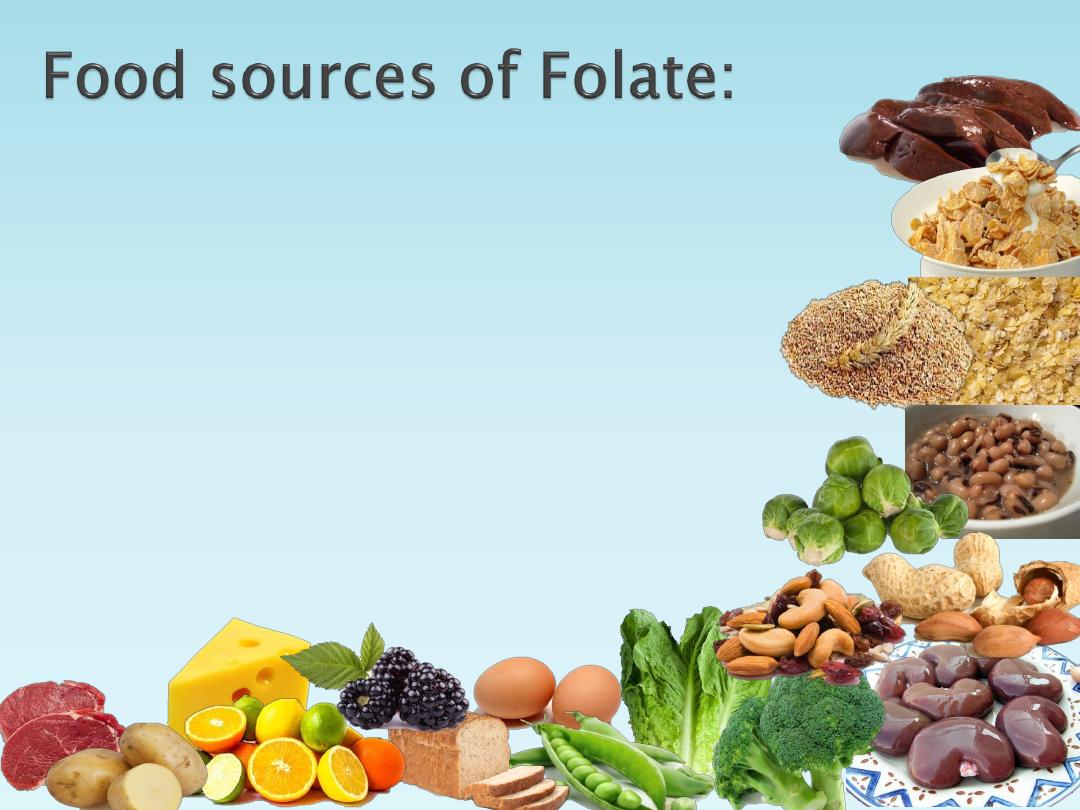
Liver (especially chicken).
Fortified breakfast cereals.
Wheat germ, bran, soya flour.
Black eyed beans (boiled)
Brussels sprouts, peanuts.
Kidney, nuts, seeds.
Broccoli, lettuce, peas.
Whole meal bread, eggs.
Citrus fruits, black berries, potatoes.
Cheese.
Beef.

These folates have many essential roles in one-carbon transfers in the
body including one of the steps in DNA synthesis.
In folate deficiency there is megalobastosis of blood cells and other
cells with a rapid turnover, as well as anaemia, diarrhoea (diarrhoea
especially happen when deficiency results from antagonism due to
drugs rather than dietary lack).
Causes:
Poor diet.
Malabsorption.
Increased requirement (pregnancy).
Increased cell proliferation (Haemopoiesis, lymphoproliferative
disorders).
Antagonism from a number of drugs (Methotrexate,
Pyrimethamine, and co-trimoxanzole).
Also alcohol is the commonest antagonist.
Trauma, infection, uraemia, increased haemopoiesis, dialysis,
vomiting or diarrhoea may also be partly responsible for folate
deficiency

Research in late 1990’s pointed that:
First: Maternal folate intake at the start of
pregnancy above the level of 1000μg/day have been
shown to greatly reduce the risk of neural tube
defect in the foetus.
Second: Extra folate can reduce raised plasma
homocysteine level which have been shown to be an
independent risk factor for cardiovascular disease.
*In the USA, fortified cereal food with folic acid
was made mandatory in 1998 and the recommended
intake has been increased to 400μg/day for men and
women and 600μg/day in pregnancy.
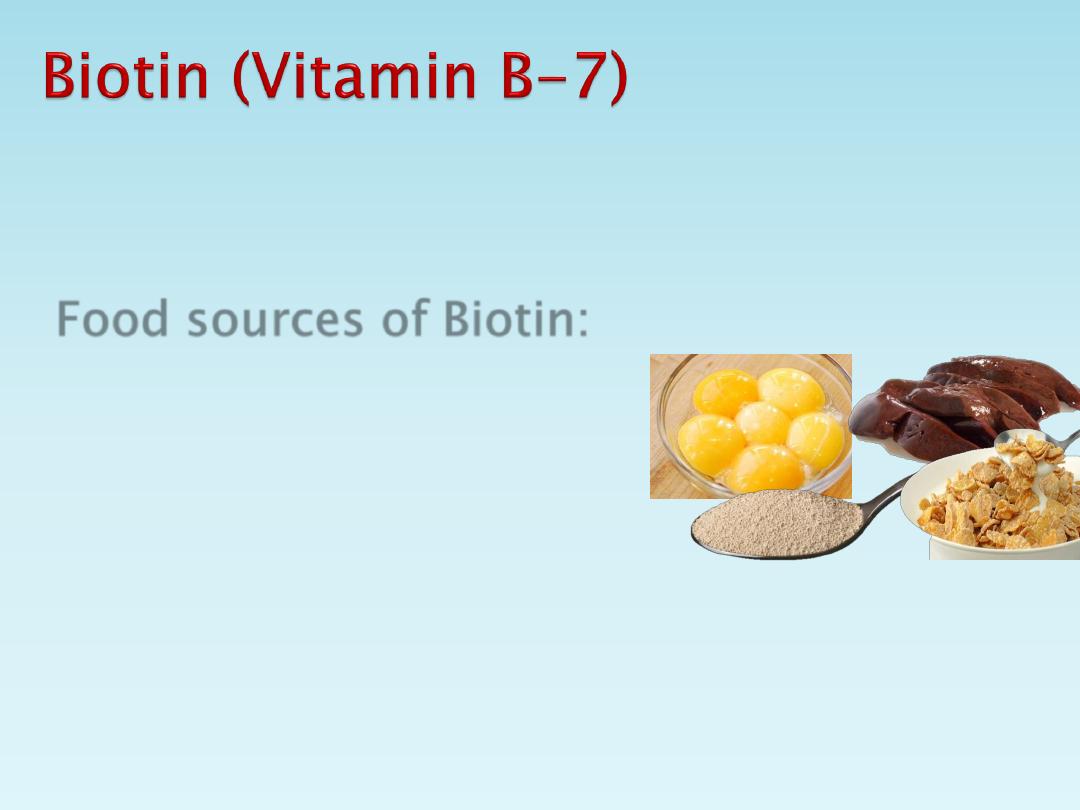
It is a co-enzyme in carbohydrates, fatty acids, and amino
acids.
*Daily requirements for healthy adults: 30μg.
Food sources of Biotin:
Liver.
Egg yolk.
Cereal.
Yeast
Biotin deficiency rarely occurs with a natural diet, but is
occasionally seen in patients consuming raw eggs because a
vidin in raw eggs bind to biotin in the intestine and
inactivates it.
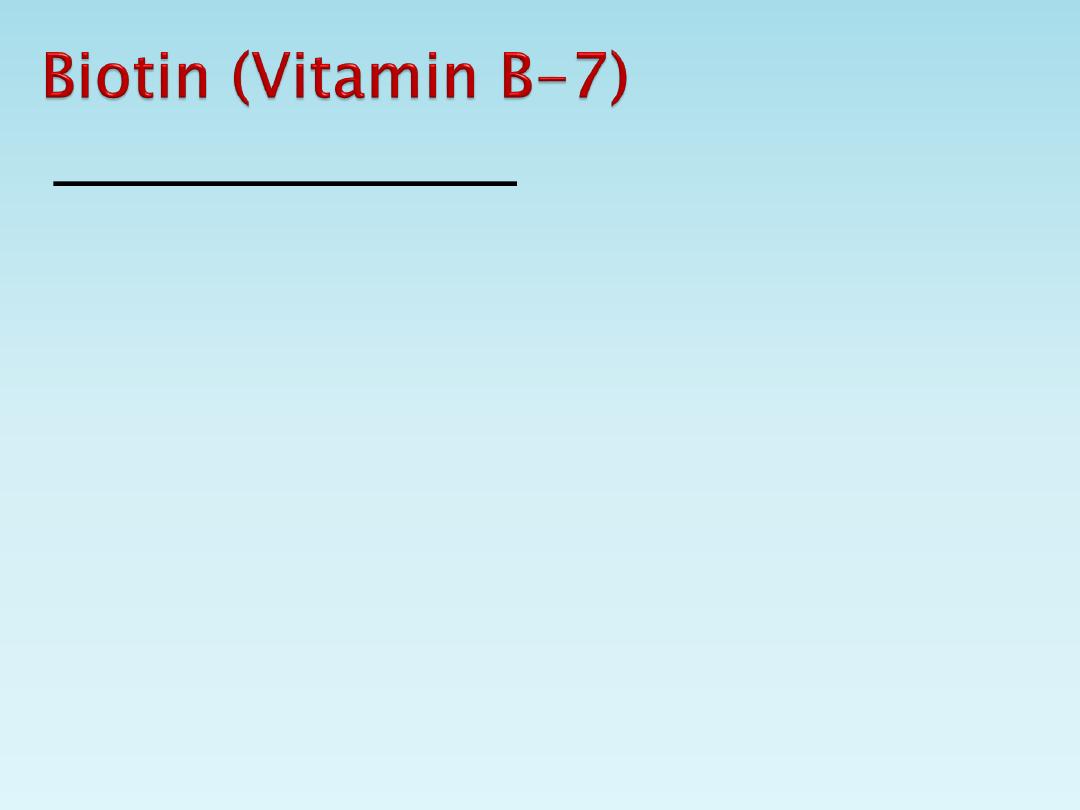
Features of deficiency:
Scaly dermatitis.
Alopecia.
Parasthesia.
A form of Seborrhoeic dermatitis of infants responds
to biotin.

Thank you
for your attention.
